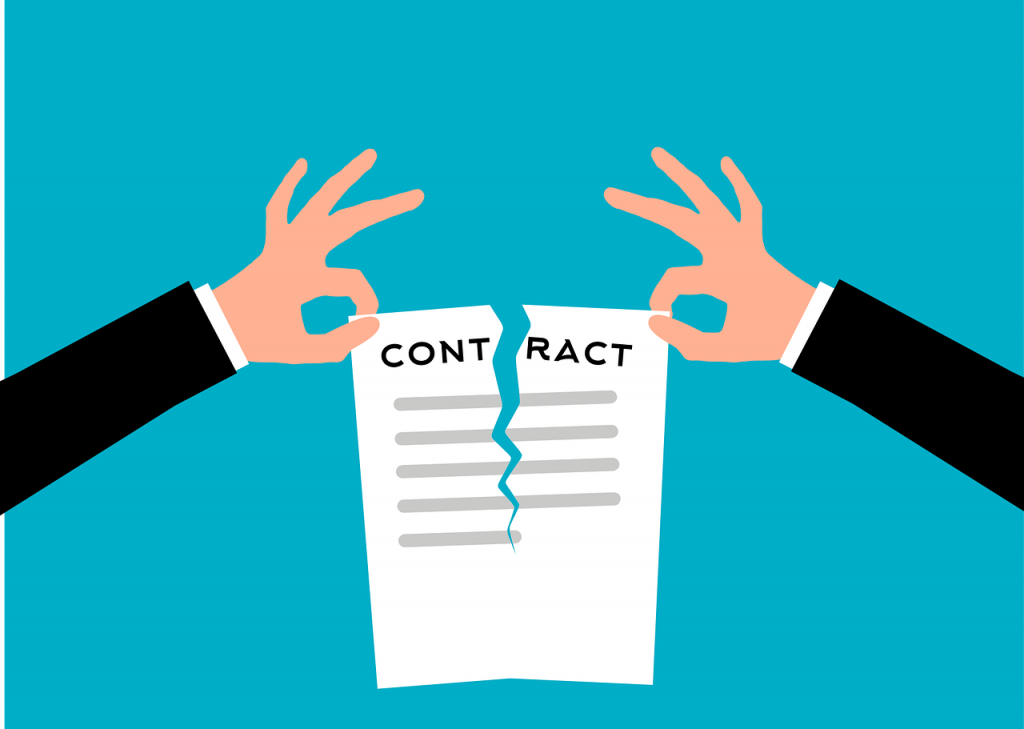Starting a new business can be an exciting endeavor, filled with opportunities and potential for success. However, amidst the excitement, it is crucial for new Utah businesses to be aware of the common legal issues they may face. From choosing the right business structure to understanding employment laws, navigating the legal landscape can be complex and overwhelming. In this article, we will discuss some of the key legal challenges that new Utah businesses often encounter, providing you with valuable insights and guidance to ensure that your business remains compliant and protected.

Choosing a Business Structure
Overview of business structures
When starting a new business, one of the most important decisions you will need to make is choosing the right business structure. There are several options available, each with its own advantages and disadvantages. The main types of business structures include sole proprietorship, partnership, limited liability company (LLC), and corporation. It is essential to understand the characteristics of each structure to determine the best fit for your business.
Pros and cons of sole proprietorship
A sole proprietorship is the simplest and most common form of business structure. As the sole owner, you have complete control over the business and its operations. One of the main advantages of a sole proprietorship is that it is easy and inexpensive to set up. However, a major drawback is that you have unlimited personal liability, meaning your personal assets may be at risk if the business faces legal issues or debts.
Pros and cons of partnership
A partnership is a business structure that involves two or more individuals who share ownership and responsibility for the business. Partnerships can be general partnerships, where all partners share equally in profits and liabilities, or limited partnerships, where some partners have limited liability. The main benefit of a partnership is the shared workload and expertise. However, partners also share liability, and disagreements between partners can arise, leading to potential conflicts.
Pros and cons of LLC
A limited liability company (LLC) is a popular choice for small businesses due to its flexibility and liability protection. LLC owners, also known as members, have limited personal liability for the company’s debts and obligations. An LLC also offers pass-through taxation, meaning the company’s profits and losses are reported on the members’ individual tax returns. One potential downside of an LLC is the complexity of formation and ongoing compliance requirements.
Pros and cons of corporation
A corporation is a separate legal entity from its owners, known as shareholders. One of the main advantages of a corporation is the limited liability protection it offers to its shareholders. This means that shareholders are generally not personally responsible for the company’s debts and liabilities. Additionally, corporations have the ability to issue stock and attract investors. However, corporations are subject to more extensive regulations and formalities, such as holding regular shareholder meetings and maintaining accurate corporate records.
Registering a Business
Requirements for business registration
Before you can officially start your business, you must fulfill certain requirements for business registration. These requirements vary depending on the state and type of business you are starting. In Utah, you will typically need to register your business with the Utah Division of Corporations and Commercial Code. This involves filling out the necessary paperwork, paying the required fees, and providing information about your business, such as its name, address, and ownership structure.
Choosing a business name
Selecting a business name is an important step in the registration process. Your business name should be unique and reflective of your brand. It is advisable to conduct a thorough search to ensure that your chosen name is not already in use by another business. You can check the availability of your desired business name through the Utah Division of Corporations and Commercial Code’s online database. Once you have chosen a name, you can reserve it for a fee if you are not yet ready to register your business.
Obtaining necessary licenses and permits
Certain businesses may require specific licenses and permits to operate legally. The types of licenses and permits you need will depend on your industry and the location of your business. Common examples include professional licenses, health permits, zoning permits, and sales tax licenses. It is important to research and understand the licensing requirements for your specific business to ensure compliance with all applicable laws and regulations.
Intellectual Property
Protecting trademarks and copyrights
Intellectual property (IP) refers to creations of the mind, such as inventions, artistic works, and symbols. Trademarks and copyrights are two forms of IP that are crucial for protecting your business’s brand and creative works. A trademark is a word, phrase, symbol, or design that distinguishes your products or services from those of competitors. Copyright, on the other hand, protects original artistic and literary works. Taking steps to protect your trademarks and copyrights can help prevent others from using your IP without permission.
Registering trademarks and copyrights
Registering your trademarks and copyrights provides additional legal protection and benefits. For trademarks, registration with the United States Patent and Trademark Office (USPTO) provides nationwide rights and the ability to enforce your trademark against infringers. Copyright registration with the U.S. Copyright Office is not mandatory but offers benefits, such as the ability to seek statutory damages and attorney’s fees in copyright infringement lawsuits. Consulting with an experienced IP attorney can help you navigate the registration process and protect your valuable IP rights.
Enforcing intellectual property rights
Enforcing your intellectual property rights is essential to prevent others from unlawfully using or profiting from your creations. If you discover unauthorized use of your trademarks or copyrights, you have legal options to enforce your rights. This may involve sending a cease and desist letter, initiating litigation, or pursuing alternative dispute resolution methods. An IP attorney can guide you through the enforcement process and help you take appropriate legal action to defend your intellectual property rights.
Contractual Agreements
Understanding contract basics
Contracts play a vital role in the business world, as they formalize agreements between parties and establish legal obligations. Understanding the basics of contracts is essential for protecting your rights and ensuring that your business interests are properly represented. Some key elements of a valid contract include offer and acceptance, consideration, legal purpose, capacity, and mutual consent. It is crucial to carefully review and understand all terms and conditions before entering into any contractual agreement.
Drafting and reviewing contracts
Drafting and reviewing contracts is a critical skill for businesses to ensure that their interests are protected and potential risks are minimized. Working with a knowledgeable business attorney can help you create well-drafted contracts tailored to your specific needs. A well-drafted contract should clearly outline the rights and responsibilities of all parties, include appropriate legal language, and anticipate potential issues or disputes. Careful review is equally important when entering into contracts prepared by third parties to ensure that your rights are adequately addressed.
Negotiating favorable terms
During contract negotiations, it is crucial to advocate for your business’s best interests and seek favorable terms. Negotiating various aspects of a contract, such as pricing, delivery schedules, payment terms, warranties, and dispute resolution mechanisms, can help protect your business and improve your position. Careful consideration of both legal and business aspects is vital to ensure that you achieve a mutually beneficial outcome. An experienced business attorney can provide valuable guidance and negotiate on your behalf to help you secure favorable contract terms.
Breach of contract disputes
Despite best efforts, contract disputes can arise, resulting in a breach of contract. When one party fails to fulfill their contractual obligations, it can lead to financial loss and disruption to your business operations. Resolving breach of contract disputes often involves examining the terms of the contract, assessing damages, and seeking appropriate remedies. Whether through negotiation, mediation, arbitration, or litigation, having a knowledgeable business attorney by your side can help you pursue a swift and favorable resolution to a breach of contract dispute.
Employment Law
Complying with labor laws
As an employer, it is crucial to understand and comply with the various labor laws that govern the employer-employee relationship. Federal and state laws regulate areas such as minimum wage requirements, overtime pay, workplace safety, anti-discrimination, and employee benefits. Failing to comply with labor laws can result in costly legal consequences and damage to your business’s reputation. Seeking guidance from an employment law attorney can ensure that your business remains in compliance with all applicable labor laws.
Hiring employees vs. contractors
Another important consideration is determining whether to hire employees or engage independent contractors. Each category has different legal implications and obligations. Employees are entitled to certain legal protections and benefits, such as minimum wage, overtime pay, and unemployment insurance. Independent contractors, on the other hand, are not classified as employees and do not receive the same benefits. Misclassifying workers can lead to legal and financial repercussions, so it is crucial to correctly classify individuals based on the nature of their work.
Creating employee policies and handbooks
To ensure a productive and compliant work environment, it is essential to establish clear and comprehensive employee policies and handbooks. These documents outline the rights, responsibilities, and expectations of both the employer and employees. Key areas typically addressed include workplace conduct, anti-discrimination and harassment policies, attendance and leave policies, and disciplinary procedures. Consulting with an employment law attorney can help you create policies and handbooks that reflect best practices and comply with all applicable laws.
Dealing with employee disputes
Employee disputes can disrupt productivity and potentially lead to legal action. It is essential to address employee disputes swiftly and fairly to maintain a positive work environment and mitigate potential legal risks. Whether dealing with issues such as wrongful termination, discrimination, harassment, or wage disputes, seeking guidance from an employment law attorney can help you navigate the complexities of employment-related disputes and work towards a resolution that protects your business interests.
Tax Obligations
Understanding federal and state tax requirements
Understanding and complying with federal and state tax requirements is critical for businesses to avoid penalties and legal complications. The Internal Revenue Service (IRS) sets forth federal tax obligations, including filing income tax returns, paying self-employment taxes, and withholding taxes from employees’ wages. In addition to federal taxes, businesses must also be aware of state-specific tax obligations, such as sales tax, use tax, and state income tax. Consulting with a tax attorney or accountant knowledgeable in business taxation can help you understand and meet your tax obligations.
Filing business taxes
Filing business taxes correctly and on time is essential to avoid penalties and ensure compliance with tax laws. The specific filing requirements will depend on the structure of your business. Sole proprietors report business income and expenses on their individual tax returns, while partnerships, LLCs, and corporations typically file separate tax returns. It is advisable to work with a tax professional who can assist you in preparing and filing accurate and timely business tax returns.
Claiming deductions and credits
Businesses may be eligible for various deductions and tax credits, which can help reduce their tax liability. Common deductions include expenses related to business operation, such as rent, utilities, employee wages, and advertising. Tax credits, on the other hand, provide a dollar-for-dollar reduction in tax liability and are available for specific activities or investments, such as research and development or energy-efficient initiatives. Working with a tax professional can help you identify and claim all eligible deductions and credits, maximizing your tax benefits.
Resolving tax disputes
Tax disputes with the IRS or state tax agencies can be complex and time-consuming. If you find yourself facing a tax dispute, seeking legal representation from a tax attorney experienced in handling tax controversies can greatly benefit your case. A tax attorney can navigate the audit or appeals process, negotiate on your behalf, and help you resolve the dispute in the most favorable manner possible. Prompt action and professional guidance are crucial when dealing with tax disputes to protect your business’s financial interests.

Business Licensing and Compliance
Obtaining necessary business licenses
Depending on the nature of your business, you may need to obtain certain licenses and permits to operate legally. These licenses and permits ensure that your business complies with specific industry regulations and standards. The requirements for business licenses vary by location and industry. In Utah, you can find information on required licenses and permits through the Utah Department of Commerce. Failing to obtain the necessary licenses can result in fines, penalties, and even the forced closure of your business.
Complying with local and state regulations
Beyond licensing requirements, businesses must also comply with a wide range of local and state regulations. This may include zoning laws, building codes, health and safety regulations, labor laws, and environmental regulations. Non-compliance can lead to legal consequences, negative publicity, and damage to your business’s reputation. Staying informed about applicable regulations and seeking advice from a business attorney can help you ensure compliance and avoid costly legal issues.
Handling compliance audits
Compliance audits are measures taken by government agencies to ensure that businesses comply with relevant laws and regulations. These audits may be random or triggered by specific events or complaints. If your business is selected for a compliance audit, it is crucial to gather all necessary documentation and evidence to demonstrate your compliance. Having a business attorney by your side during the audit process can help you navigate the audit effectively and ensure that your rights are protected.
Protecting Personal Assets
Separating personal and business finances
Maintaining a clear separation between personal and business finances is essential for protecting your personal assets. This means establishing separate business bank accounts, obtaining a business credit card, and keeping thorough records of all business transactions. Treating your business as a separate entity not only helps protect your personal assets from business liabilities but also provides a clear financial picture for tax purposes and prevents potential issues during audits or legal disputes.
Understanding personal liability
Depending on the business structure you choose, your personal liability for business debts and obligations may vary. Sole proprietors and partners have unlimited personal liability, meaning they could be held personally responsible for business debts. On the other hand, forming a limited liability company (LLC) or a corporation can limit your personal liability. Understanding your personal liability and taking appropriate steps to protect your personal assets can help safeguard your financial security.
Avoiding piercing the corporate veil
“Piercing the corporate veil” is a legal concept that allows a court to hold individual shareholders or members personally liable for the debts or actions of a corporation or LLC. To avoid this, it is essential to adhere to corporate formalities and maintain proper documentation. This includes holding regular shareholder or member meetings, keeping accurate corporate records, and keeping personal and business finances separate. Seeking guidance from a business attorney can ensure that you follow best practices and minimize the risk of piercing the corporate veil.

Data Protection and Privacy
Complying with data protection laws
Data protection laws govern the collection, use, and storage of personal information by businesses. Compliance with these laws is crucial to protect the privacy of your customers and avoid legal consequences. In Utah, businesses must comply with state data breach notification laws and adhere to federal laws such as the Health Insurance Portability and Accountability Act (HIPAA) and the Children’s Online Privacy Protection Act (COPPA). Implementing appropriate data protection measures and seeking legal advice can help you comply with these laws and safeguard customer data.
Protecting customer information
As a business, you have a responsibility to protect the personal information of your customers. This includes implementing appropriate security measures to prevent unauthorized access or disclosure of sensitive data. Common security measures include encrypting customer data, regularly updating software and systems, restricting access to sensitive information, and providing employee training on data protection practices. Engaging the services of a cybersecurity professional can help you assess and strengthen your data protection measures.
Handling data breaches
Despite your best efforts, data breaches can still occur. In the event of a data breach, it is crucial to respond promptly and effectively to mitigate potential damages. This may include notifying affected individuals, cooperating with law enforcement and regulatory agencies, and implementing measures to prevent future breaches. Having a data breach response plan in place and working closely with a legal and cybersecurity team is essential to ensure an appropriate and compliant response.
Responding to privacy complaints
Privacy complaints can arise from customers or individuals who believe their personal information has been mishandled or improperly used. It is crucial to handle privacy complaints with care and address them promptly and professionally. Maintaining open lines of communication, investigating complaints thoroughly, and implementing any necessary corrective measures demonstrates your commitment to protecting privacy and can help prevent legal action. Seeking advice from a privacy law attorney can assist you in effectively resolving privacy complaints while minimizing potential legal risks.
Dispute Resolution
Mediation and arbitration for business conflicts
Mediation and arbitration are alternative dispute resolution methods that can help businesses resolve conflicts more quickly and cost-effectively than traditional litigation. Mediation involves a neutral third party facilitating negotiations between the parties to help them reach a mutually acceptable resolution. Arbitration, on the other hand, involves a neutral arbitrator who reviews evidence and makes a legally binding decision. Choosing the most appropriate dispute resolution method depends on the nature of the dispute and the desired outcome. Seeking advice from a skilled business attorney can help you determine the best course of action.
Filing lawsuits for business disputes
In some cases, filing a lawsuit may be necessary to protect your business interests and seek appropriate remedies. Whether you are facing breach of contract, intellectual property infringement, or other business disputes, initiating litigation can help you assert your rights and pursue financial compensation or other legal remedies. Engaging the services of a business litigation attorney experienced in representing businesses in court can provide you with the necessary guidance and advocacy throughout the litigation process.
Enforcing judgments and settlements
Once a judgment or settlement is reached in a business dispute, enforcing it is crucial to ensure compliance and obtain the agreed-upon relief. Enforcing a judgment may involve various actions, such as garnishing wages, placing liens on property, or seeking court orders for specific performance. Enforcing a settlement typically requires ensuring all parties fulfill their agreed-upon obligations within the specified timeframe. Having a knowledgeable business attorney who understands enforcement procedures can help you navigate the process and protect your legal rights.
Frequently Asked Questions (FAQs)
1. What are the benefits of forming a limited liability company (LLC)?
Forming an LLC provides several benefits for your business. It offers limited liability protection, separates personal and business finances, allows for pass-through taxation, and offers flexibility in management and ownership structure.
2. How can I protect my business’s intellectual property?
To protect your business’s intellectual property, you can register trademarks and copyrights, monitor and enforce your rights, and seek legal assistance from an experienced IP attorney.
3. What should I include in an employment handbook?
An employment handbook should include policies and procedures related to employee conduct, anti-discrimination and harassment, attendance and leave, disciplinary procedures, and other relevant topics specific to your business.
4. How can I minimize my business’s tax liability?
Seeking guidance from a tax professional can help you identify eligible deductions and credits, properly structure your business, meet tax filing deadlines, and comply with all applicable tax laws to minimize your tax liability.
5. What should I do if my business faces a data breach?
If your business experiences a data breach, you should respond promptly by notifying affected individuals, cooperating with regulatory agencies, conducting an investigation, and implementing measures to prevent future breaches. Consulting with a legal and cybersecurity team can help you navigate the response effectively.
In conclusion, starting and running a business involves various legal considerations. From choosing the right business structure to protecting intellectual property, complying with regulations, and resolving disputes, having a knowledgeable business attorney by your side can provide invaluable guidance and ensure that your legal needs are met. Do not hesitate to reach out to our experienced business law firm in Utah for comprehensive legal assistance tailored to your specific business needs.




















